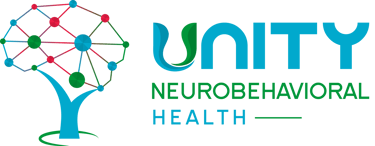
Neuropsychological Evaluations

Adult & Geriatric Neuropsychological Evaluations
Our evaluations for adults and older adults are designed to address concerns such as memory lapses, attention difficulties, and changes in cognitive or emotional functioning. These assessments are particularly useful for identifying and managing conditions such as:
Traumatic brain injury (TBI)
Stroke or cerebrovascular conditions
Alzheimer’s disease and other dementias
Neurological disorders (e.g., Parkinson’s, multiple sclerosis)
Mood and anxiety disorders
Cognitive changes related to chronic illnesses or medical treatments
What to Expect:
Initial Clinical Interview: A one-on-one session to discuss your medical history, current concerns, and goals for the evaluation.
Testing Sessions: Comprehensive, standardized assessments tailored to examine areas such as memory, executive functioning, attention, and emotional well-being.
Feedback Session: A thorough discussion of results, diagnostic clarity, and personalized recommendations.
Detailed Report: A written document summarizing findings and outlining next steps for treatment or management.
Benefits for Adults and Older Adults:
Early detection of cognitive decline or neurodegenerative disorders.
Differentiation between neurological and psychiatric conditions.
Development of treatment plans for rehabilitation or lifestyle adjustments.
Guidance for managing medical or neurological conditions that affect cognition.


Pediatric evaluations are conducted in a child-friendly environment, focusing on how brain development affects learning, behavior, and social-emotional functioning. These evaluations help identify developmental challenges, learning disabilities, or behavioral concerns, offering clarity and actionable solutions for parents and educators.
Common Reasons for Pediatric Evaluations:
Attention Deficit Hyperactivity Disorder (ADHD)
Learning disabilities (e.g., dyslexia, dyscalculia)
Emotional or behavioral difficulties
Cognitive or academic challenges after medical illnesses or injuries
Giftedness or advanced cognitive abilities
Traumatic brain injury (TBI)
Key Components of the Evaluation Process:
1. Parental and Child Interviews:
In-depth discussions with parents or guardians to gather developmental, medical, psychological, and educational history.
Interviews with the child to better understand their experiences, concerns, and perspectives.
2. Comprehensive Testing:
A series of engaging, age-appropriate standardized tests and observational measures will be conducted to assess key areas of functioning:
a) Cognitive Abilities & Intelligence (IQ Tests)
Measures problem-solving, reasoning, processing speed, and intellectual strengths.
Helps determine learning potential and academic fit.
b) Academic Achievement
Evaluates proficiency in reading, writing, and math.
Identifies potential learning disabilities or areas needing additional support.
c) Learning Style Evaluation
Determines how your child best learns and processes information.
Assesses giftedness in children who may also have learning differences.
d) Visual & Auditory Processing Skills
Assesses how your child perceives and makes sense of visual and auditory information.
Identifies challenges with reading comprehension, sound discrimination, and attention to detail.
e) Memory & Learning
Measures short-term, working, and long-term memory abilities.
Evaluate how well your child retains and recalls information, which is critical for school performance.
f) Attention, Focus & Executive Functioning
Assesses attention span, impulse control, organization, planning, and problem-solving.
Screens for ADHD and executive function challenges.
g) Emotional, Personality & Behavioral Assessments
Explores mood, personality traits, social skills, anxiety levels, emotional regulation, and behavioral patterns.
Identifies concerns related to depression, anxiety, or conduct issues.
h) Pragmatic (Social) Speech & Communication Skills
Evaluates expressive and receptive language abilities.
Assesses how well your child engages in social communication and interaction.
i) Motor Skills & Coordination
Tests fine and gross motor coordination.
Assesses proprioception (awareness of body position) and movement-related challenges.
3. Feedback Session
A detailed review of the findings with parents or guardians.
Personalized recommendations for educational accommodations, therapies, and treatment options.
4. Written Report
A comprehensive report summarizing the evaluation results.
Contains strengths, challenges, and individualized strategies for school, home, and treatment providers.
Can be used to advocate for IEP (Individualized Education Plan) or 504 accommodations in school settings.
Optional: Classroom Observations
In some cases, a classroom visit may be arranged to observe your child’s behavior, focus, and interactions in an educational setting. This can provide valuable insights into real-world learning and social environments. Please note that additional charges may apply for classroom observations.
How Pediatric Evaluations Differ from School Evaluations:
Unlike school assessments, neuropsychological evaluations provide a broader understanding of your child’s cognitive, emotional, and social functioning, offering deeper insights into how they learn and interact. This allows for targeted interventions that foster growth and development both academically and socially.
See our guide on "Talking to Your Child About the Assessment."
Pediatric Neuropsychological Evaluations


What Are Neuropsychological Evaluations?
Neuropsychological evaluations assess various aspects of cognitive functioning, such as attention, memory, language, and problem-solving, while considering the effects of neurological, medical, and psychosocial factors. These evaluations provide a detailed understanding of how brain systems influence everyday functioning and offer actionable steps toward improved well-being.
© 2025 Unity Neurobehavioral Health. All rights reserved.


Office Location
(By Appointment Only)
Physical Address: 118 West Lime Avenue, Suite 101, Monrovia, CA 91016
Telephone: (626) 321-2889
Fax: (626) 593-4199
Email: info@unityneuro.com
